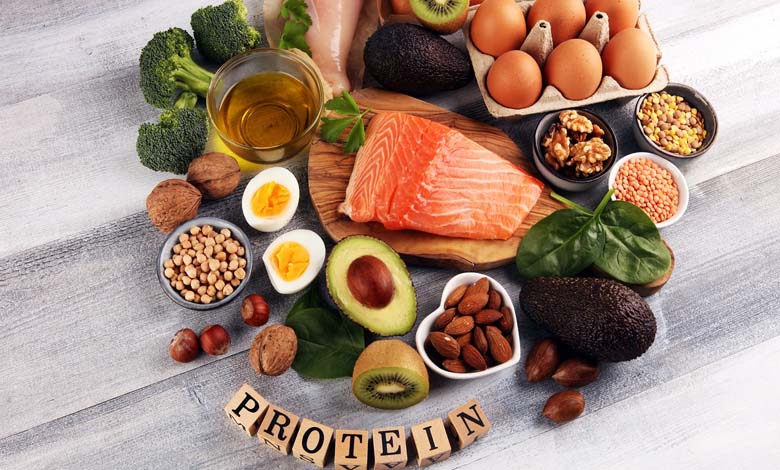5 Signs That Indicate Protein Deficiency

Health experts have identified potential signs of protein deficiency, a crucial nutrient for maintaining bone and muscle health, as well as overall wellness.
Experts from the “Fast 800” diet team emphasized the importance of adequate protein intake, according to a report published by Bristol Post.
They stated that: “Protein is an essential nutrient required to maintain bone and muscle health, boost metabolism, and reduce the risk of chronic health issues such as osteoporosis and cardiovascular diseases.”
- Feeling Hungry
The experts identified five signs of protein deficiency, the most notable being frequent hunger. Protein enhances satiety and helps control appetite, contributing to prolonged fullness between meals.
When protein levels are low, the hormone ghrelin (the hunger hormone) increases, which may lead to overeating and weight gain as the body tries to replenish its stores.
-
5 Foods to Boost Energy and Ease Winter Fatigue
-
5 Types of Legumes “Perfect” for Weight Loss in winter
- Mood Swings
Fatigue and mood swings are also significant indicators of protein deficiency. A lack of protein can reduce energy levels and increase energy demands, causing physical and emotional imbalances.
- Weak Nails, Hair, and Skin
Another warning sign involves weak nails, hair, and skin. These parts of the body rely on proteins such as collagen, keratin, and elastin. Protein deficiency can cause noticeable damage, affecting appearance and overall health.
-
Boiled Eggs or Scrambled Eggs: Which Is Better for Your Health?
-
5 Common Mistakes to Avoid When Eating Dried Fruits
- Muscle Loss
Protein deficiency can lead to muscle loss. When the body lacks sufficient protein, it begins to break down muscle tissue to preserve vital organs.
- Blood Sugar Fluctuations
Protein plays a key role in regulating blood sugar levels. A deficiency can result in blood sugar fluctuations, triggering cravings for quick sugars as the body seeks instant energy.
The experts stress the importance of recognizing these signs and prioritizing adequate protein intake to maintain general health and support balanced nutrition.












